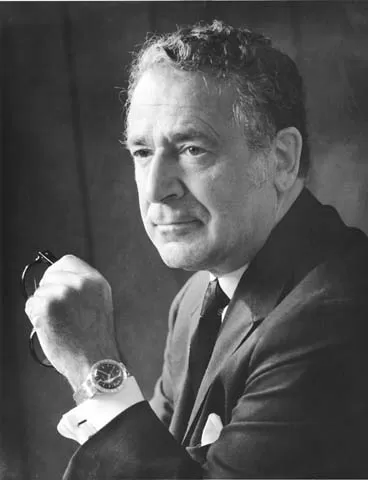Victor W. Farris (1910-1985), Industrialist-Inventor, was born in Buffalo, New York where he attended the University of Buffalo and later continued his education at M. I. T. He manufactured many of his own inventions in his 17 privately-held companies and factories in the United States, Canada, South America, England, France and Australia.
Genius is a term that is used to denote exceptional intellectual or artistic ability which manifests itself through extraordinary accomplishments in the fields of creation, discovery or invention. The epitome of genius is exemplified by the achievements of Victor W. Farris who held over 275 patents both in the United States and Europe, including such inventions as a device that carried auto instruments which snapped into positionóan invention that Ford Motor Company purchased. The Trepanning machines, Navy hydraulic devices, the Farris valve, which are shipped around the world, are vitally needed in numerous industrial manufacturing plants. They are used by chemical, food, oil, mining, quarrying, paper, and brewing industries throughout the United States. Mr. Farris was the largest manufacturer of valves in the world. He implemented a series of inventions which were the basis of the intricate safety and relief valve used to control the flow of chemicals, steam, gases, and hydrocarbon vapors. By utilizing engineering and physical laws, an efficiency of 98% was achieved. Victor Farris produced the ingenious pinch valve product which controlled the flow of paper pulp, coal, heavy water, and other viscous and corrosive materials. The ubiquitous milk carton was developed by Mr. Farris after five years of intensive research in creating the proper machine to facilitate production. Victor Farris set a new world standard for his products that is yet to be exceeded.
The National Free Enterprise Award was presented to Victor W. Farris. This Award is given annually to the ten most outstanding businessmen in the United States. Along with this he also received the Presidential Achievement Award. Victor Farris merged his companies with Teledyne, Inc. , and became one of its largest shareholders. He attributed his great success to a personal credo that truth and integrity must be a part of business. “If you depart from the truth you must eventually come back to it, and in doing so you may waste your years of accomplishment. If you are a person of truth you will make progress,” he said. Adding, “integrity is something that cannot be compromised. You are either a person of integrity or you are not. Some people think that integrity can be bartered. It cannot be. Integrity reaches into all facets of business and government. Integrity and truth are not always rewarded promptly. ”
This unusual man, who gave the world numerous inventions, also derived a great deal of pleasure in giving of himself. A strong believer in the educational system, he was a member of many boards and during that time he saved the Graham-Eckes School (Palm Beach Academy) from extinction. At the same time he installed the antenna which put PBS on the air in the Palm Beaches (Channel 42) and was the Chairman of the Board of Directors. He was also a member of the Advisory Board of the Rosarian Academy, which named its library in his honor during the 1970s.
Victor W. Farris, who was an avid yachtsman, was a member of the New York Yacht Club, the Englewood Yacht Club, the Sailfish Club of Palm Beach, and numerous other civic, cultural, and social organizations. His professional associations included the American Association for Advancement of Science ñ a link with his science minded brothers and colleagues.
Mr. Farris not only left a great legacy in the industrial world, but to the American free enterprise system. “The free enterprise system as it would relate to any other system depends on an individual’s incentive as well as reward as part of an individual’s growth. If the individual is encouraged to produce, the free enterprise system cannot help but create wealth, employment, and leadership. A nation is made up of individuals. To limit an individual is to limit the nation,” he said.
Victor W. Farris passed away on March 7, 1985. The Good Samaritan Medical Center was always of great interest to him and he admired its standards of care and medical professionalism which served the community he lived in. Upon his passing, Celia Lipton Farris, his wife of 29 years, provided the funds to erect the Victor Farris Medical Building on the campus of Good Samaritan Hospital, in honor of her husband and for the betterment of the community.


